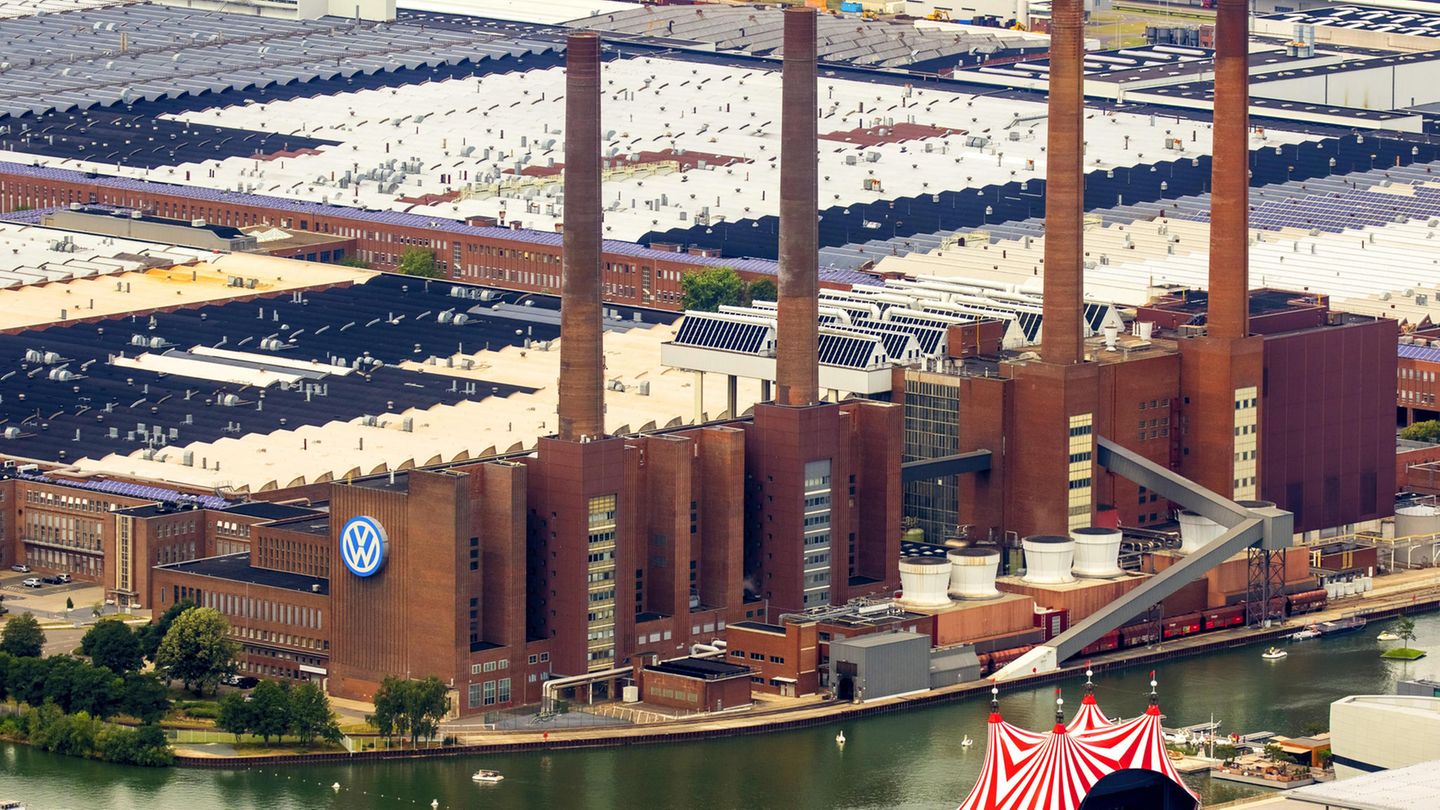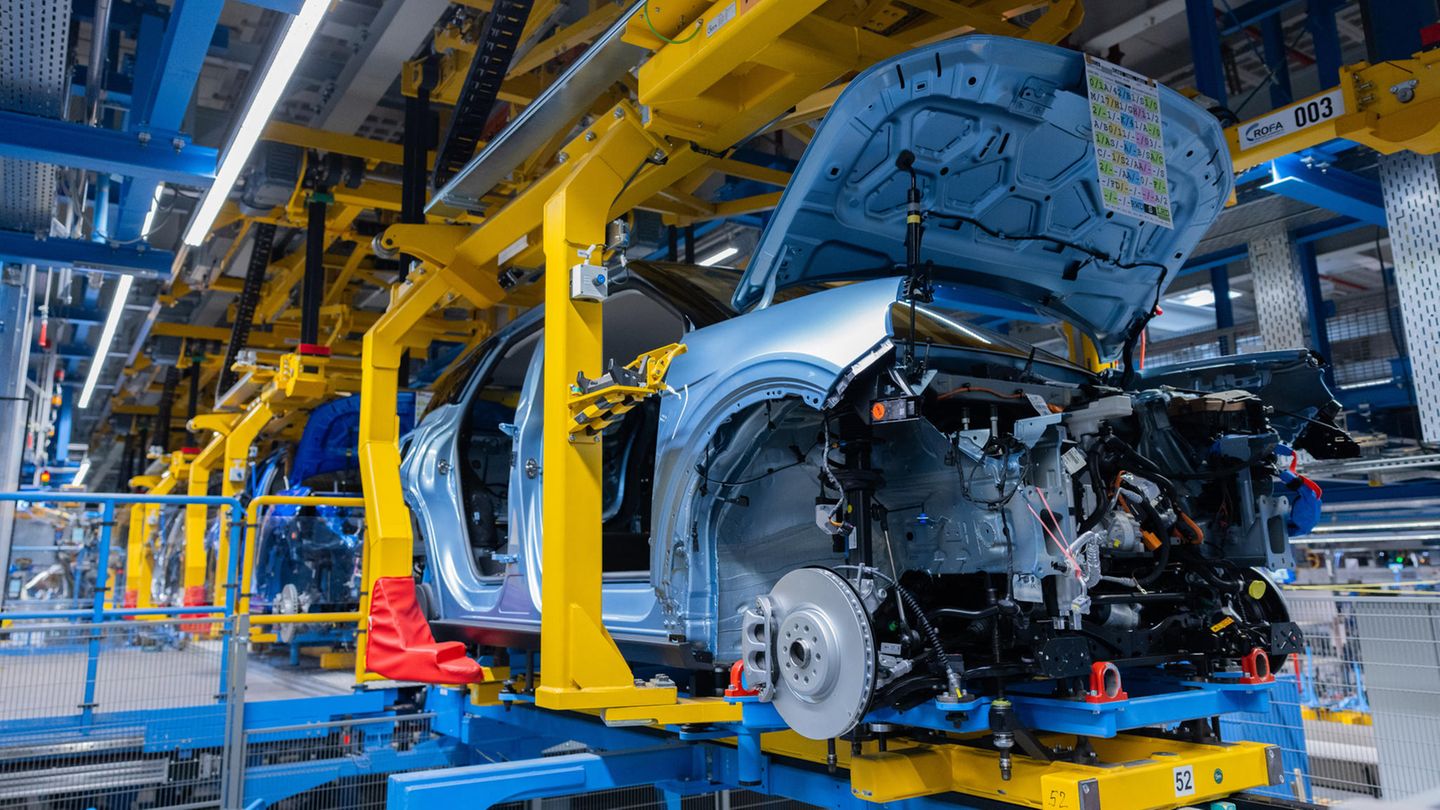Auto industry
Ford wants to cut almost 3,000 jobs in Germany – especially in Cologne
Copy the current link
Another blow for the German auto industry: In order to reduce costs, many jobs are to be eliminated at the car manufacturer Ford – most of them in Cologne.
The US car manufacturer Ford wants to cut 2,900 jobs in Germany by the end of 2027 and thus reduce costs. Most of the jobs are to be cut at the Cologne plant, as the company announced. Overall, Ford is aiming to cut 4,000 jobs in Europe, 800 of them in Great Britain and 300 in other EU countries. According to the works council, management wants to announce the details on Thursday.
The European headquarters and the production of two electric car models are located in Cologne. According to the works council, Ford currently has around 11,500 jobs in the cathedral city – that would mean that around one in four Ford jobs there could be eliminated. The employee representatives announced resistance.
The works council defends itself
“This is a black day,” said the head of the general works council, Benjamin Gruschka, at a short-term press conference in Cologne. “We are ready to fight.” He did not want to comment on details. “We have a lot of starting points.” The employee representatives rejected the plans. Ford has already cut over 5,400 jobs in Germany from 2018 to 2020.
Ford, like Volkswagen and other competitors, is struggling with weak demand. According to the works council, around 2,000 employees in Cologne have been on short-time work since Monday. Ford stated that it wanted to reduce production of the new “Explorer” and “Capri”, which will probably lead to further short-time work at the Cologne plant in the first quarter. Despite high investments in Europe in recent years, the car manufacturer has accumulated significant losses.
The company said Ford had made high losses in the passenger car segment in recent years. In this segment, the costs of switching to electric cars are high. The company also referred to Stromer competitors and strict CO2 emissions targets. From Ford’s perspective, such requirements are an obstacle to the separate business with combustion engines.
These are the ten VW plants in Germany
|
capital

Wolfsburg
The VW main plant on the Mittelland Canal is considered the largest connected car factory in the world. The facilities cover 6.5 square kilometers and around 62,000 employees work at the VW headquarters. The factory and the city of Wolfsburg were founded in 1938 for the production of the “KdF-Wagen”, which later became the VW Beetle. Today the Golf, Tiguan and Touran are built here. With an annual production of around 500,000 vehicles, the site is only half full. VW canceled the construction of another factory for electric cars in Wolfsburg in 2023.
© blickwinkel / H. Blossey / Picture Alliance
Demand has collapsed
Ultimately, all German car manufacturers are currently under a lot of pressure. After the state subsidy for electric cars was abolished, demand has collapsed, and the sluggish economy and job fears are also leading to consumer reluctance to buy.
Ford manager Marcus Wassenberg said that they wanted to continue to operate a strong business in Europe for future generations. “We must therefore implement difficult but decisive measures to ensure Ford’s competitiveness in Europe.”
Management reinforced its appeal to federal policymakers to improve market conditions. In Germany and Europe there is a lack of “a consistent and clear political agenda to promote electromobility,” complains Ford executives.
In 2018, Ford still had almost 20,000 employees in Cologne
Ford has invested almost two billion euros in its Cologne site in 2023 and 2024 in order to be able to produce electric cars. Production of the Fiesta small car combustion engine model was discontinued. The two electric car models from Ford in Cologne are the first electric car series models from Europe.
But the high expectations have not yet been met to any extent. Management had to reposition itself when German boss Martin Sander unexpectedly moved to VW this summer. Other senior managers also turned their backs on Ford.
In order to solve the problems, Ford is now continuing to shrink. In 2018, the car manufacturer still had almost 20,000 employees in the cathedral city, but by the end of 2027 there will likely be less than half of that number.
DPA · Reuters
rw/urb
Source: Stern





